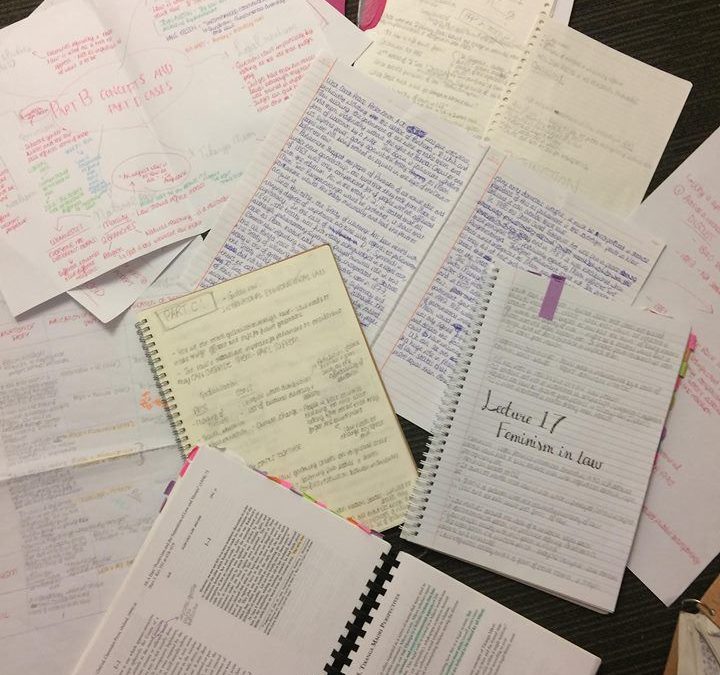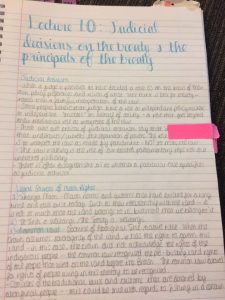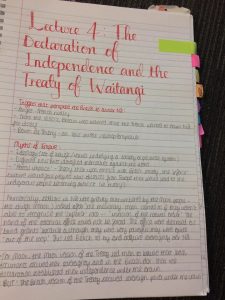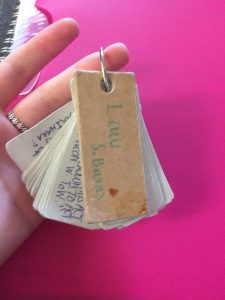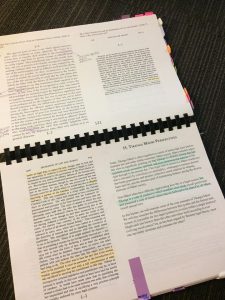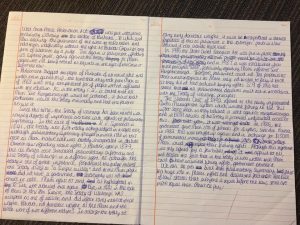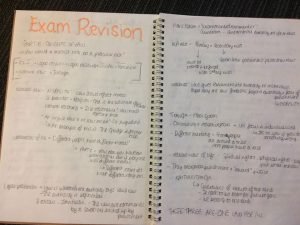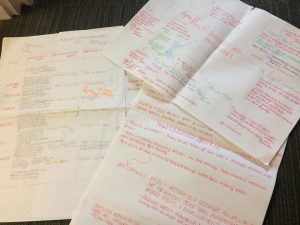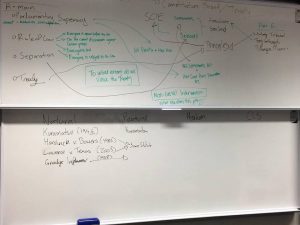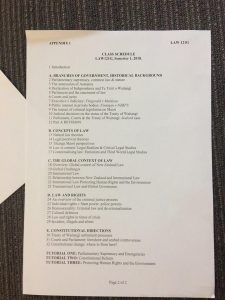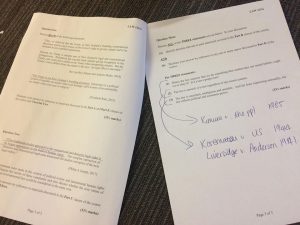Exams are HARD.
Being in a competitive course like law, I knew early on that I would need to organise myself and be better prepared for tests and exams than I was when in high school; as unlike with NCEA, it is near impossible to pass a course based on assignments alone. As a person who does get stressed and anxious very easily, exams often worry me and my academic performance has been affected by this in the past. Even the lucky few who don’t get particularly affected by the stress that exam season puts us under, are still required to sit their tests; and for all of us, preparation is important. I have learnt and taken this on board particularly at university.
Everyone’s prep techniques are different, but here are a few ways that helped me to feel confident in my performance in my law exam.
- Visuals
Throughout high school I did write notes, however, they tended not to be the greatest because I often verbatim copied whatever was on the whiteboard, without really taking any of the content in. I would later go back to my exercise books at the end of the year and not even remember writing some of what was on the page in front of me.
Coming into uni, I was aware that this would have to change, as there would not be a set of teachers telling us exactly what we should be writing down. I concluded that in lectures I would take digital notes, to get more content down in less time and then later I could go through my rough scribbles with a fine-toothed comb and pick out what really mattered. Unfortunately, I really dislike reading extensive reams of digital notes as it isn’t as easy to annotate and highlight key points, so after every law lecture I wrote out what I thought was necessary information by hand. This is NOT AN OVERRATED TECHNIQUE. I have embedded far more knowledge by writing bits and pieces out by hand than any information that I typed out. Handwriting is a far slower process and subsequently allows for more time to think about what is on the page and what information I needed to retain. I enjoyed being able to hand highlight and keeping tidy really was a help to me, though this isn’t essential for everyone. No matter how you take your notes though it is crucial to be consistent and to keep revisiting past classes every now and then.
Also, having a set of small flash cards that a friend and I wrote out before the inter-semester break has been handy to have attached to my keys. They’re extremely bashed up and sad looking now, but I found myself glancing over them at times that I otherwise wouldn’t have thought to read law notes. (Such as with those awkward encounters in the lifts…)
- Reading, re-reading and remembering
In law, actually doing and annotating the set readings is extremely important. Lecturers in law don’t cover everything from their readings in lectures, it’s just expected that you would know certain things from readings and connect them to various lecture materials. I certainly found that some readings were more beneficial than others but holistically, if I hadn’t pre-read, I really would have struggled with the classes themselves. In fact, it was motivating to go to class knowing which cases would come up beforehand.
If you do the recommended readings, it becomes easier to understand and to glean the most important pieces of information to make bullet-point-like notes of your own, in a way that you best understand.
- Group work
Honestly, all of the above has been genuinely useful but the most helpful study technique for 121 was studying alongside other law students. Before the exam, I spoke to so many other students and hearing the wealth of opinions and strategies as to how to combat a specific question made me far more confident in my own opinions. I joined study groups with people that I met in class, and in the run-up to the exam we discussed and brainstormed how we collaboratively viewed a certain concept. Also, the other two law students on my hall floor were incredible when it came to bouncing theories back and forth between each other. Even just listening to their different stances helped me before going into the exam. Personally, I found that doing a wealth of practice exams and exam questions didn’t help me an awful lot, even though it came as a highly recommended exam strategy. Talking through practice questions with other people helped me far more so.
Please bear in mind that although studying is important, it is equally as important to balance yourself – cramming late into the early hours of the morning may seem like a good idea when you’re stressed and worried about knowing everything you need to, but if you’ve prepared well beforehand, there is much less to worry about 😊 Keep yourself healthy!
Sophie
